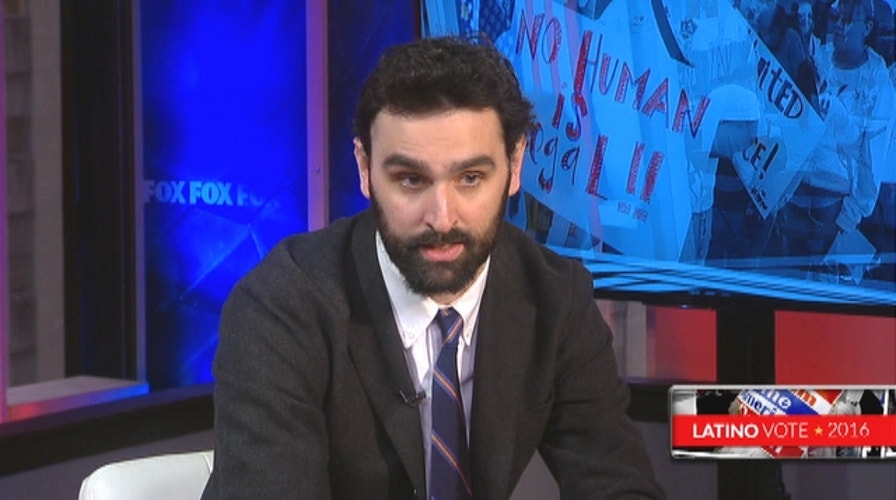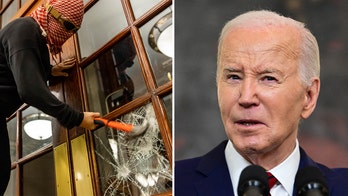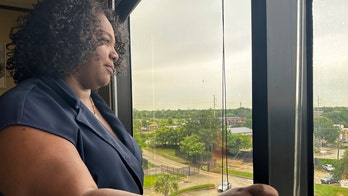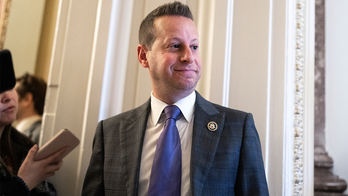New Hampshire primary: Will the Latino vote matter?
Fox News Latino reporter, Andrew O'Reilly explains.
Nashua, N.H. – Walking down the stretch of West Hollis St. between Vine and Palm streets in this small, industrial New England city feels very much like walking through a section of New York City's Washington Heights neighborhood.
This gritty strip of road a few blocks from the Nashua River and the city's famed Millyard is the heart of the state's small, but growing Latino community — bustling traffic coming in and out of La Fama Barber Shop, a Mexican grocery selling tortillas and tamales, and bodegas advertising calling cards to the Dominican Republic, Mexico and other parts of Latin America.
But West Hollis Street is also a microcosm of the Granite State's Latino community in the sense that it feels politically overlooked, analyst say. Despite its small size, experts argue that any candidate hoping to win in New Hampshire should focus more attention on the budding Hispanic community here.
"There are huge groups of people in the community who are unaccounted for politically," Marilinda Garcia, a spokesperson for the Libre Initiative and a former New Hampshire state representative, told Fox New Latino. "In a small state, with more than a dozen candidates vying for votes, a small group like this can make a huge difference."
The common picture painted of a New Hampshire voter is that of an older veteran or millworker, who votes fiscally conservative and treasures his individual liberties. And for the most part that is a fair assessment, as roughly 94 percent of the 1.3 million people living in New Hampshire is white, according to 2014 census figures.
Recent data, however, is showing that there is a slow but steady shift in these demographics. While only 3.3 percent of the state's population is Latino, 52.6 percent of that group is eligible to vote — ranking it 11th in the nation in terms of the share of Latinos eligible to vote, according to Pew Research.
In a small state, with more than a dozen candidates vying for votes, a small group like this can make a huge difference.
A new report from the Carsey School of Public Policy at the University of New Hampshire shows that between 2008 and 2015, about 247,000 people moved into the state from elsewhere in the United States – including Puerto Ricans and Dominicans from working-class neighborhoods in Massachusetts.
An estimated 197,000 of Latinos of voting age have stayed in the state, the survey found.
Adding to this is the wide diversity of the Latino population in New Hampshire and the varying concerns of the electorate.
The first group of Latinos to immigrate en masse to New Hampshire was Uruguayans, who came to the state about 40 years ago to work in the textile mills. They were followed by Colombians, who moved to the Granite State after missionaries visited the South American nation.
In recent years, many Puerto Ricans and Dominican have moved to the state from places like Lowell and Lawrence in Massachusetts. A growing group of Mexicans also call the state home – lured to the state by jobs in the construction, landscaping and service industries in places like Manchester, Nashua and Salem – and there is a smattering of immigrants from places like Honduras, Brazil and Venezuela across the state.
"We're still a small community, but we're growing," Alejandro Urrutia, the former president of Latinos Unidos for Action, a group that raises money for scholarships for Latino students, told FNL. "These are people that take risks; they want to make a better life for themselves."
Like in the rest of the U.S., the Hispanic population in New Hampshire is far from being a monolithic group regarding what issues concern them when they head to the polls. Most will name immigration as a primary concern – given that they have a relative, neighbor or somebody else they know who is undocumented – but jobs, education and health care all rank high on their list important issues.
"They have the same concerns as the middle class and everyone else who is struggling to make ends meet," Urrutia said. "A big problem is that the community’s concerns are not represented in leadership positions throughout the state. There is a lack of that."
After Marilinda Garcia left office to run for a U.S. congressional seat, there was only one Latino in the state's congress, Rep. Carlos González, and he told FNL that it is hard to get the Latino community's concerns across to other lawmakers.
"Sometimes there is that prejudicial mindset, where people say because you are a minority you are not up to par with the other people that are there," said Gonzalez, who represents the western section of Manchester .
Activists in the state say that another big reason that Latinos have been overlooked in the past when it comes to presidential politics is that many immigrants who have obtained their citizenship still feel wary about being involved in the political system.
"People are disengaged because there are so many gatekeepers," Eva Castillo, the New Hampshire Immigrant Project organizer, told FNL.
Castillo said that despite the barriers she is slowly seeing more and more Latinos becoming politically active — especially as issues such as immigration have become hot-button issues during this campaigns season.
"If you don't speak up, you're invisible," she said.
Castillo is part of a group that has been canvassing Latino neighborhoods throughout the state in an effort to register voters and pointed out that other activists have also been hitting up West Hollis Streets and other Hispanic enclaves in the lead-up to the February 9 primary.
"There's hope," she said. "It's going to be a long time before we fully get there, but there is hope."





